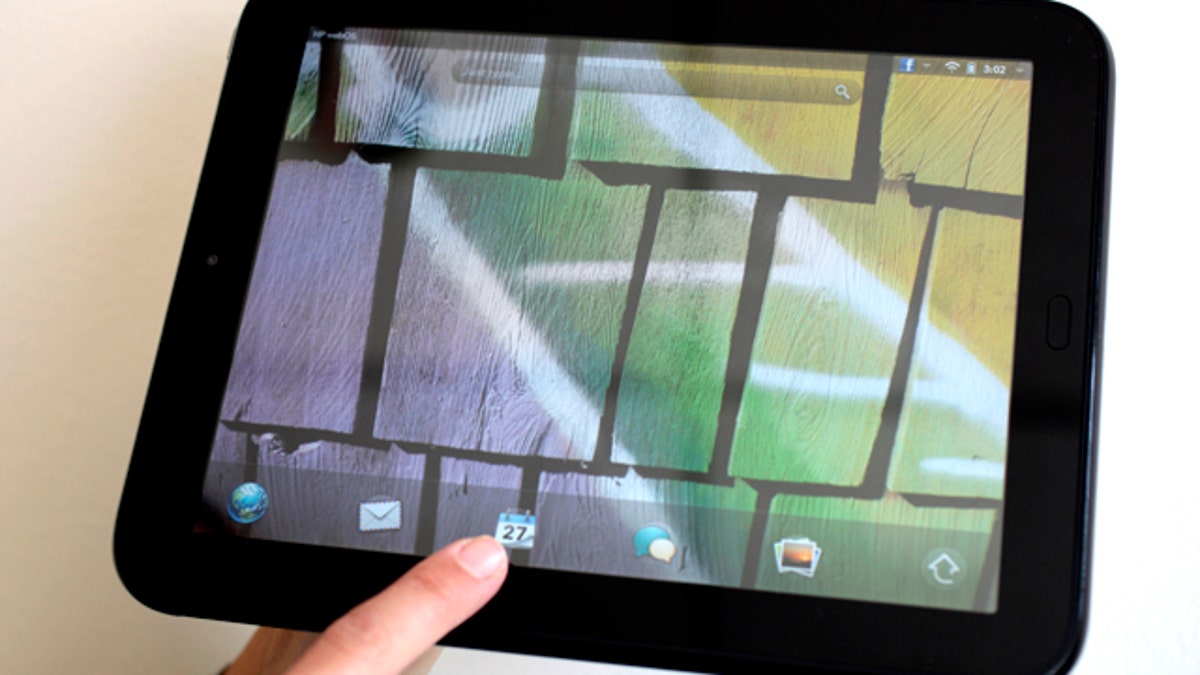
The HP TouchPad -- a tablet computer running Palm's WebOS operating system -- is displayed in San Francisco. (AP Photo/Eric Risberg)
SANTA CLARA, Calif. – The U.S. and European PC markets have entered a dangerous new phase: Fewer people are buying new PCs because of economic anxiety, market saturation and the rise of seductive new gadgets such as Apple's iPad. And more signs of strain are expected as PC makers and their component suppliers begin to disclose quarterly earnings this week.
Make no mistake: The PC is still the backbone of the digital world, powering e-commerce, social networking and more. It is a fixture in homes and businesses in industrialized countries. More than 1 million PCs are sold every day, and the industry is bigger than ever.
But worldwide sales have slowed in recent years. The U.S. and European markets have fared the worst, suffering lately from declines compared with the previous year. Market research firms IDC and Gartner Inc. said last week that PC shipments worldwide grew at just over 2 percent in the second quarter, short of both firms' expectations.
One of the most urgent concerns is that the PC has become ubiquitous in many markets. That has presented the industry with a classic business problem: how to find new ways to sell an established product.
Consumers can now use smaller gadgets to do many of the same things they once did with PCs, such as surfing the Internet, storing photos and sending e-mail. Apple even boasts that users can edit home movies on an iPad.
Indeed, consumers' increasing demand for tablets is a looming threat. Some 50 million tablets are expected to be sold this year, and that could double to as many as 100 million next year, according to various estimates. Although that's still small compared with sales of 362 million PCs this year, as estimated by IDC, the PC industry has reason to worry because of how quickly the tablet has been able to claimed such a large corner of the market.
Goldman Sachs calls tablets "one of the most disruptive forces in computing in nearly three decades." It predicts that as many as 21 million people will buy tablets instead of laptops this year, jumping to 26.5 million next year.
In recent quarters, corporations have buoyed much of the spending on PCs. That likely continued in the April-June period, but the drag from consumers is expected to be substantial. Intel Corp., which makes 80 percent of the world's microprocessor chips, issues financial results on Wednesday. Advanced Micro Devices Inc., its smaller rival, and Microsoft Corp., whose Windows software runs on most of the world's PCs, report on Thursday.
Intel and its PC manufacturing customers are hustling to adapt.
Intel, for example, is working on chips that are less power-hungry so that they're more useful in battery-dependent mobile devices. The company says it has signed deals for sou have a tablet, you may not bring your notebook on a trip. It's only going to get stronger, and tablets are going to get better and better. This is a legitimate threat to a PC maker. They have to have both, and unfortunately most are behind in the game."
Even if current market projections become a reality, there still would be a wide gulf between the $35 billion tablet market and the $250 billion PC market. The PC won't become obsolete any time soon because it's still the device of choice for creating the content that consumers increasingly access with their smartphones and tablets. At least for now, PCs are also needed to store data and to load information onto smaller devices.
How much of the computer market it will be able to command in the future, however, is an open question.








































